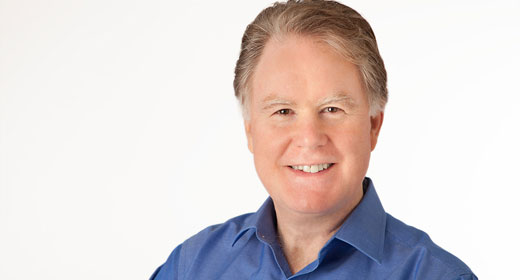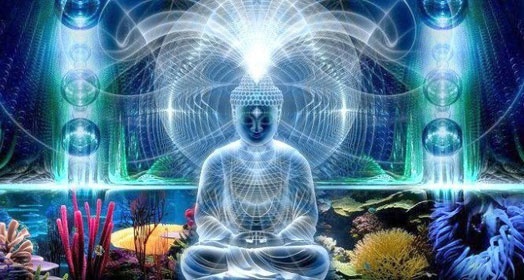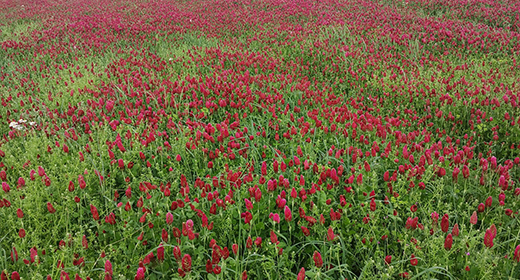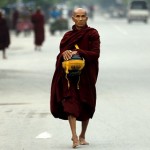Socrates was right: “The unexamined life is not worth living for a human being.”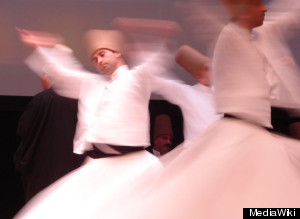 I like to ponder the big questions worth asking. The meaning of life, and all that. Robert Fulghum (the “All I Really Need To Know I Learned In Kindergarten” guy), once said that he asks the “What’s the meaning of life” question from many people since you never know who might know the answer. In my case, I enjoy asking these questions not so much because I expect any one person to give me the definitive answer, it’s rather that I look at truth, meaning, spirit, reality, beauty, love as transcending any one person’s understanding.
I like to ponder the big questions worth asking. The meaning of life, and all that. Robert Fulghum (the “All I Really Need To Know I Learned In Kindergarten” guy), once said that he asks the “What’s the meaning of life” question from many people since you never know who might know the answer. In my case, I enjoy asking these questions not so much because I expect any one person to give me the definitive answer, it’s rather that I look at truth, meaning, spirit, reality, beauty, love as transcending any one person’s understanding.
So I like to ask the question from many people and synthesize their answers. I teach a large class of university students: a few hundred eager, skeptical, seeking, beautiful, wounded souls — in other words, people just like the rest of us. When I get a chance, I like to bounce some ideas off of them to see what I can learn from them. And these amazing souls have helped me figure something beautiful about that biggest question of all: the meaning of life. It turns out that the meaning of life is intertwined with death — but not as I expected it.
I asked them what they would do if their physician were to inform them that they had only two to three months to live. They started naming items off of their “bucket list,” places in the world that they wanted to visit, activities they wanted to engage in. Yes, getting laid (frequently) figures rather prominently in their list. Mostly, though, it was about visiting places: Grand Canyon, Paris, Hawaii, the beach, NYC, came up again and again. For some more adventurous souls, it was thrill-seeking activities: bungee jumping, jumping off an airplane, seeing their favorite musician in concert, etc.
I then asked these students what they would do if the same physician had told them that actually they only had two or three hours to live. There was an eerie kind of silence in the room. The same students spoke out, except that this time it was not about seeing places, or even activities. Time and again, it was:
“I’d like to spend time with my mom.”
“I’d want to tell my dad that I really love him.”
“I would want to spend quality time with my boyfriend/girlfriend.”
So that you know we are not talking about saints here, yes, quite a few still said that they would want to get laid (frequently) in their last couple of hours, or have obscene amounts of ice-cream and dark chocolate. Many more, however, said that they would spend some time in prayer. Not in a church, a mosque or a temple, but simply they and their Maker, alone in prayer.
In other words, when the awareness that our time in this world is not infinite becomes connected to the preciousness of each breath, we shift from thinking about Where we want to be and instead focus on with Whom we want to be — loved ones and God. We move from what we want to Do and start reflecting on how we want to Be.
The insight from these wise souls in young bodies got me to revisit a saying of the Prophet Muhammad: “Die before you die.” I’ll confess that this used to not be one of my favorite sayings. A little too much death for my taste. I am more of a life, joy and love kind of a person. And yet I decided to dwell on this statement in light of the insights of my students to see if it would open up any deeper meanings.
There are two deaths mentioned in the “Die before you die.” The second death is the death that we all will experience: We are all going to die at the end of our lives. As to what comes after this eventual death, different traditions have had differing visions, ranging form reincarnation to heaven/hell to nirvana. Since no one has come back to inform us of what happens after death, this statement helps us shift our focus from the unseen Then and There to the Here and The Now, to the question of how we are to live in this world together, beautifully, justly and compassionately. Everyone dies, but not everyone figures out how to live — fully, lovingly. Braveheart’s William Wallace got this right: “Every man dies, not every man really lives.”
Ironically, an answer on how to live fully and beautifully is through reflecting on death. Live as if you had a few hours to live. As the Prophet said: “Conduct yourself in this world as if you are here to stay forever, and yet prepare for eternity as if you are to die tomorrow.” Pray hard. Love harder. Tell the people you love that they are loved to their very bones: “I love you right up to the moon — and back.” Forgive those who have wronged you. Make every breath count. Love again, and let yourself be loved. Let the people whose lives have touched yours know what they mean to you.
If we were living in the awareness of the sanctity of finite breaths, we wouldn’t waste that most precious gift of all — life — on silliness, on downloading crap, on revenge, on gossip, on reality TV, on accumulation of things. We would move from cherishing objects to cherishing human beings. We would want human contact and Divine contact.
Live that way now.
Many traditions speak of the need to be “born again,” and we forget that between the first birth and the second birth — the birth in Spirit, the birth in love — there is a “death.” That death is what the Prophet is talking about, and what Rumi talks about.
Rumi talks about this “dying” to our selfishness followed by a resurrection here and now to a life of love and compassion:
Die now! die now!
In this Love, die;
when you have died in this Love,
you will all receive new life.Die now, die now,
and do not fear this death,
for you will come forth from this earth
and seize the heavens.Die now, die now,
and break away from this carnal soul,
for this carnal soul is as a chain
and you are as prisoners.Take an axe to dig through the prison;
when you have broken the prison
you will all be kings and princes.Die now, die now before the beauteous King;
when you have died before the King,
you will all be kings and renowned.
There are two deaths, and the second death (the end of life physical death) is guaranteed for all. But there is a first death: the dying of the ego. The dying of the selfishness. The dying of the “me, me, me,” “mine, mine, mine,” “my people over every other people,” “my truth over your truth,” “my religion over your religion” and “my nation over your nation.” That selfishness has to vanish.
That selfishness is the Gollum of our soul, so occupied with the “my precious” that it will literally jump into hellfire after it. That Gollum, and the ring, has to vanish before we can have the Return of the King — living a human life full and beautiful as is our destiny.
If and when we come to “die” to that ego-ish quality, when we transform it to take what is base and leaden in our souls and transform it through the alchemy of love to what is golden, then there is a life beautiful, a heavenly life — Here and Now. That life, between the “first death” (of the ego) and the second death (the physical death) is a life that is glorious and luminous. It is a compassionate and kind life. It is a life that recognizes that our humanity and our divinity is all bound up together. That life is a beautiful life that is lived with the awareness that when we are to live without boundaries and without borders between our hearts and the whole of humanity.
Living that life removes the need to fear death. What’s to fear? We are with God Now, and we will be with God Then. Rumi, following the opinion of Greek philosophers, identified aspects of the human being that correspond to the mineral, the plant, the animal and the human nature. He explored the “death” of each level, by looking at death as a rising up through them, evolving towards the fullness of this potential:
I died from the mineral kingdom and became a plant;
I died to vegetative nature and attained to animality.
I died to animality and became a human.
So why should I fear?
When did I ever become less through dying?Next time I will die to human nature,
so that I may spread my wings
and lift up my head among the angels…Once again, I will be sacrificed from angelic nature
and become that which enters not the imagination.
This is what we are after, that reality of the human being that has not even entered the imagination. What we seek is that full existence, here and now, filled with compassion and love that is aware of our connection with nature, with one another, and with God. After the death of the egoist perspective, we live in the recognition that we are One, connected. Sunshine emanates from one source and illuminates all. Every ounce of air everywhere is connected. So it shall be with our existence as human being. Our hearts, our existence, our sanctity, our suffering, our hopes and aspirations, are all caught up in this network of relations and mutuality.
After the death of this ego perspective, we come to realize that we do not have to expand our hearts to encompass the whole of humanity. It is rather that we are to shatter the illusion that prevents us from recognizing our already present connection with fellow human beings. This is the “life after death,” after the ego-death, that allows illuminated souls like Rumi to live in Heaven here and now, dwelling with God as the ultimate Friend:
I have abandoned travel,
I have come to dwell with the Friend,I have become secure from death
because that long life has come.All of us will die.
May we all live like this: a life of compassion and love.Many seek the meaning of life.
Perhaps we first have to seek the meaning of death.May we live like this.
May we “die” like this.
May we be born again into a life of love like this.





